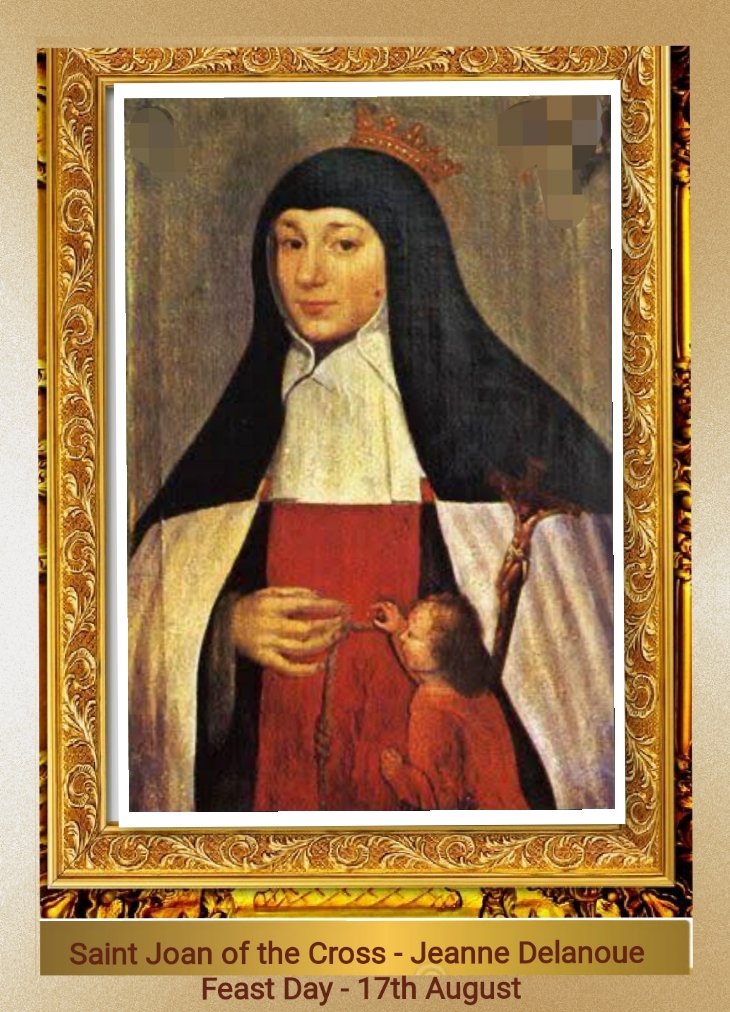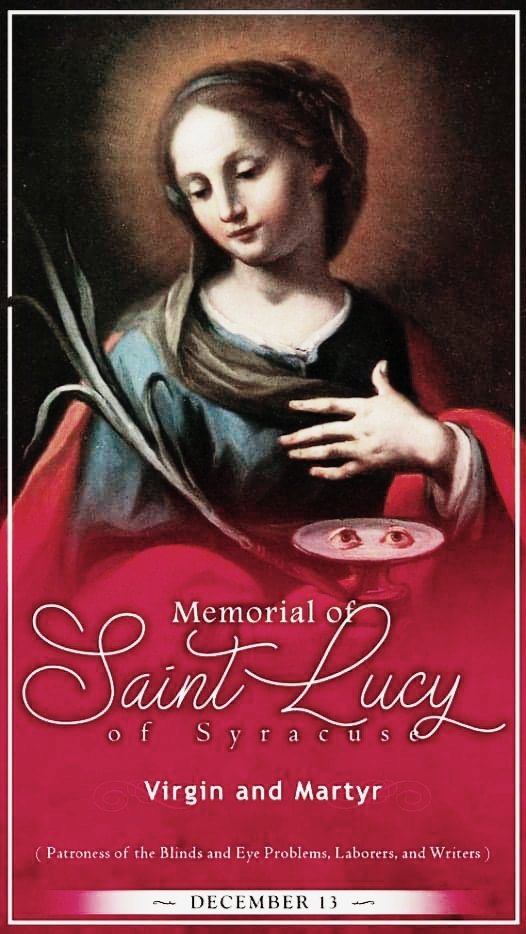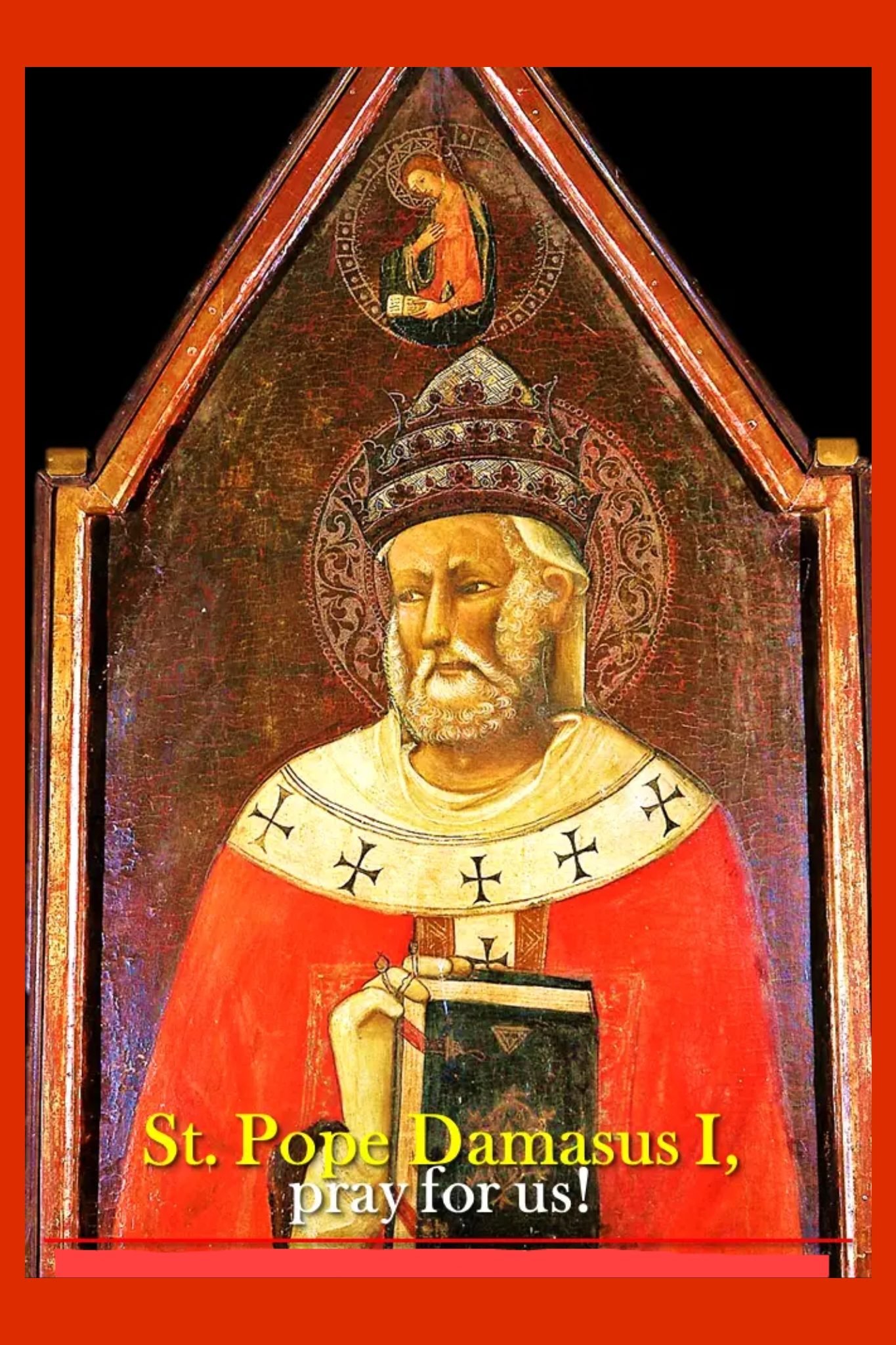
TODAY’S GOSPEL READING – 16 AUGUST
August 16, 2025
Hebrews 12:1
August 17, 2025
FEAST OF SAINT JOAN OF THE CROSS, JEANNE DELANOUE, VIRGIN
FEAST DAY – 17th AUGUST

Jeanne Delanoue (Joan of the Cross) (18 June 1666 – 17 August 1736) was the founder of the Congregation of St. Anne of Providence, and is a saint in the Roman Catholic Church. Delanoue was born in Saumur, located in the region of Anjoú, France, the youngest of twelve children. Her parents had a shop near the shrine of Notre-Dame-des-Ardilliers.
Her father was a draper, who died when she was six years old. She helped her mother run the shop selling religious goods, catering to pilgrims to the shrine. She took over the business at the age of 25 when her mother died. She also provided accommodations to pilgrims who were visiting the shrine. A skillful businesswoman, she kept the store open even on Sundays and holydays, which was considered somewhat scandalous in 17th century France.
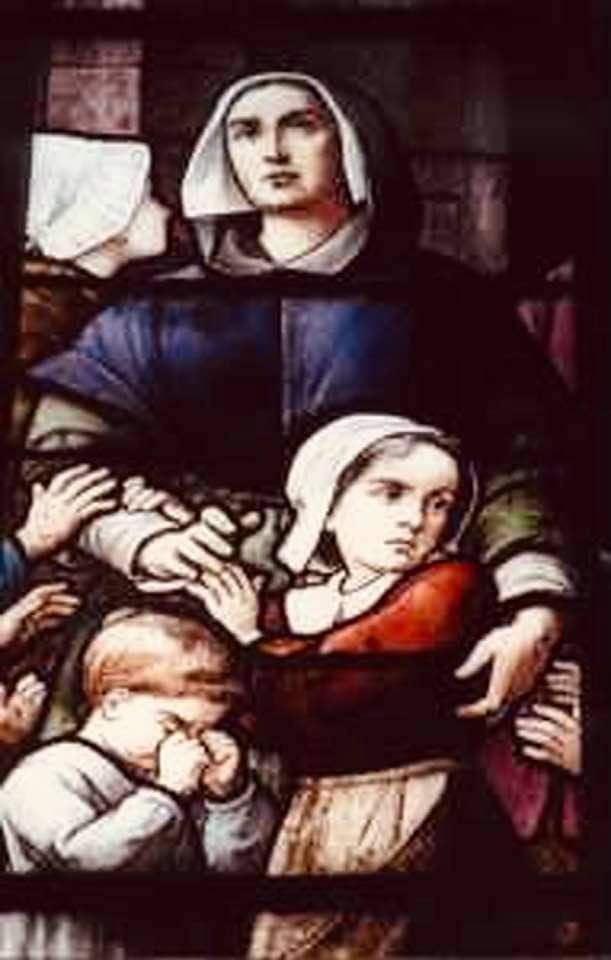
Her early life was characterized as one of self-centeredness, pride and avarice. On Pentecost 1693, Delanoue encountered Francoise Fouchet, a poor widowed pilgrim from Rennes, who predicted that Jeanne would one day spend her life caring for the poor. She greeted this prediction with some skepticism; but as time passed, caring for the less fortunate began to take up more of her time.
She began by visiting the poor in her neighborhood. Eventually she closed the family business to commit herself more fully to this work. Her house, near the Loire, had caves and cellars similar to those of wine merchants, in which she provided shelter for orphans, the sick, the aged, and the indigent. Delanoue gave particular attention especially to abandoned single mothers and prostitutes.

A landslide during the earthquake in 1703 destroyed her home, but undeterred, she found another. Many of the poor could only find shelter in the caves carved out of the tuff along the Loire. She made them as comfortable as she could. In 1704, she was joined by a few other young women who shared her vision of helping the needy.
Thus was founded the Sisters of Saint Anne of Providence of Saumur. Her work was endorsed by noted preacher Louis de Montfort. Delanoue founded Providence House, which during the famine of 1709, cared for about 100 people. That same year, Michel Poncet de La Rivière, Bishop of Angers approved the constitutions of the small congregation. She took the name in religion of Joan of the Cross.

In 1715, she established Saumur’s first home for the poor. Worn out by her labors, Delanoue died on 17 August 1736 at Fencet, France, of natural causes. At the time of her death there were twelve communities of her sisters, spread throughout France, serving the poor and needy.
“The poor and the Lord are all one,” was what Jeanne Delanoue/Joan of the Cross propagated. Jeanne Delanoue was beatified on November 8, 1947 by Pope Pius XII, and canonized in October 1982 by Pope John Paul II. Her feast day is August 17.
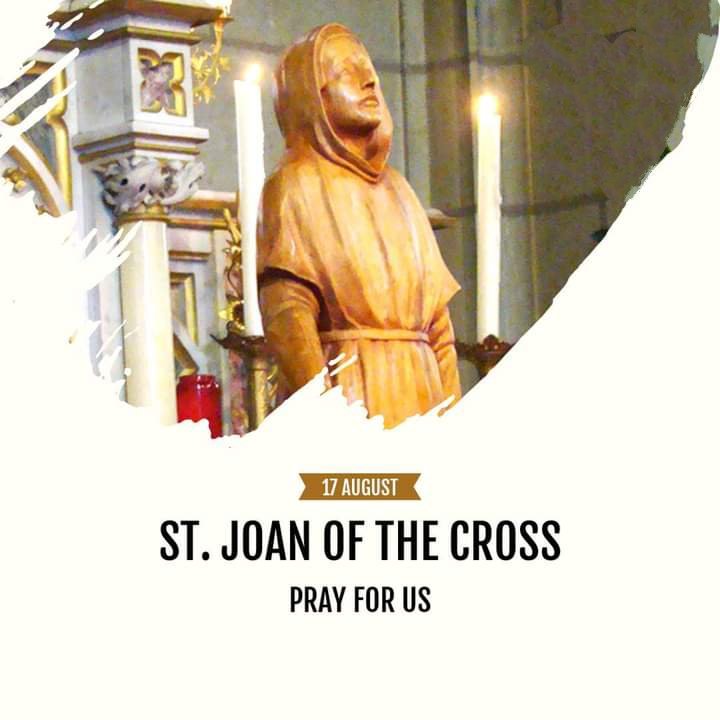
“In Saumur, in 1736, Saint Jeanne Delanoue, Virgin, with total confidence in the Providence of God, first welcomed home orphans, old women, the sick, and lost women, then, with companions, she founded the Institute of the Sisters of Saint Anne-of-Providence.” –Roman martyrology.
The congregation Jeanne founded was renamed the Congregation of the Sisters of St. Anne of Providence on 3 December 1964. As of 2021, over 400 members serve the poor in France, Madagascar and Sumatra.

PRAYER
Lord, you instructed Jeanne to give up her self-centeredness and avarice, leading her to dedicate her life to helping the poor and marginalized. Jeanne answered your call. Instead of seeking her own comfort, she gave comfort to those who were abandoned and in need.
Give us your grace Lord, to help us harness the courage and strength to accept the same challenge in our path and through living and giving, draw souls to you, in Jesus’ Name. Amen
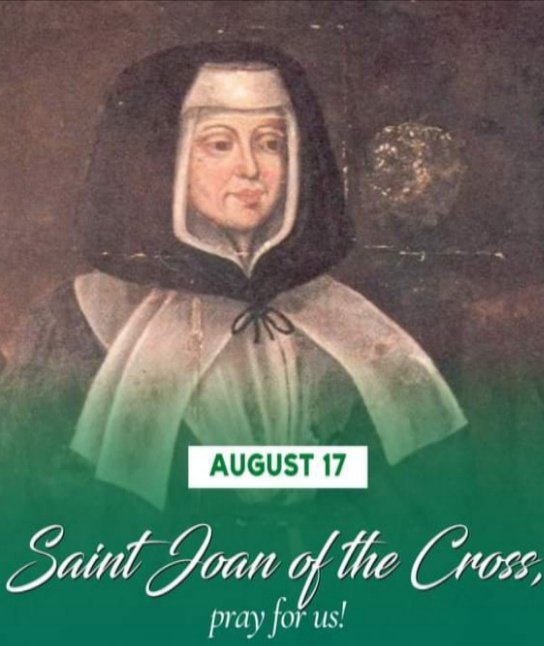
Saint Joan of the Cross, pray for us.
+++++++++++++++++++++++++++++
ALSO CELEBRATED
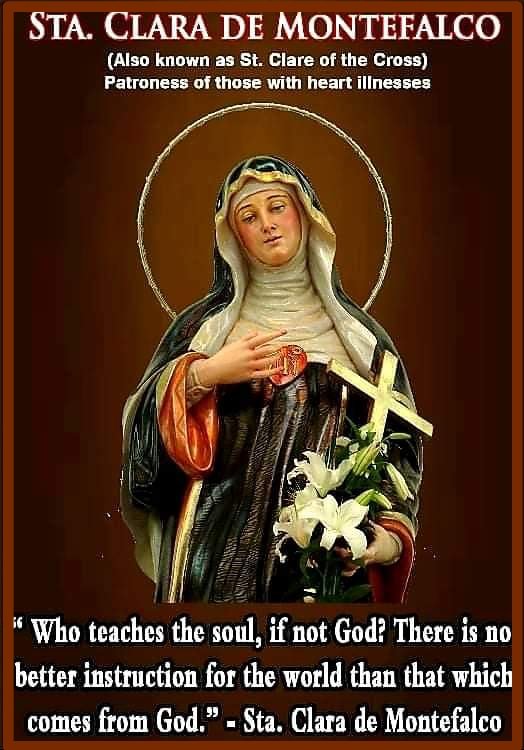
SAINT CLARE OF THE CROSS, VIRGIN FEAST DAY – 17 AUGUST
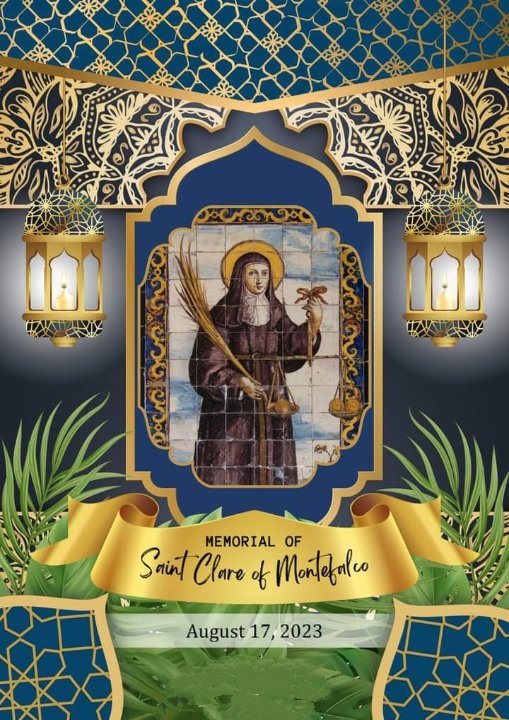
Clare was born in Montefalco, Italy, in 1268, the second daughter of Damiano and Iacopo Vengente. From a very early age she lived an eremitical life with her older sister Giovanna and another young woman in a small dwelling which Damiano had built for them.
Clare was a lively and intelligent young girl, but equally prayerful and penitential. The small community of hermits grew, and in 1290 was established as a formal convent of nuns under the Rule of Saint Augustine.
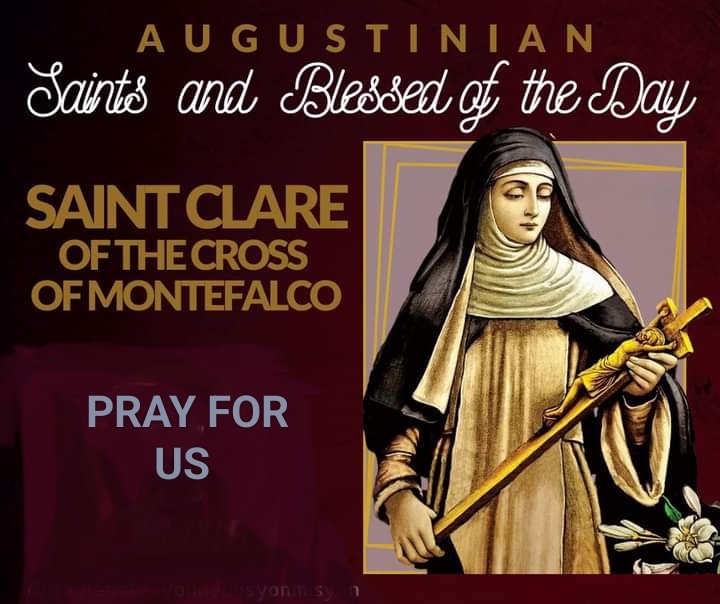
Upon the death of Giovanna, Clare at 23 years of age was elected abbess, and became mother, teacher and spiritual director of the convent. A young woman of deep spiritual perception, though with almost no formal education, she was much sought after for advice and counsel from people of all walks of life, and from within the walls of the cloister became a director of many souls.
She was deeply devoted to the Passion of Christ and was known to experience periods of ecstasy as she contemplated the mystery of the Cross.

For many years she received no consolation in her interior life except that of her own fidelity to prayer and acts of penance. During her final illness she repeated to her sisters that she bore the cross of Christ in her heart.
After her death, this was verified when the nuns examined her heart and found in it symbols of the passion of the Lord, formed from cardial muscle. Clare died on August 17, 1308 at the age of 40 and was canonized by Leo XIII in 1881.

PRAYER
Heavenly Father, the life of your most faithful servant and Saint, Clare of the Cross, is a striking reminder that holiness is the work of grace and not of human effort. Nonetheless, cooperation and humble obedience with the work of your Holy Will, Lord, is indispensable for spiritual growth, and Saint Clare won the symbols of your passion, because of her singular devotion.
We implore you, Father, to grant us faith and perseverance, for You, who made us without our willing it, will not save us without our willing it. May our deeds be allied to your Holy Will, as demonstrated by Saint Clare, in Jesus’ Name. Amen
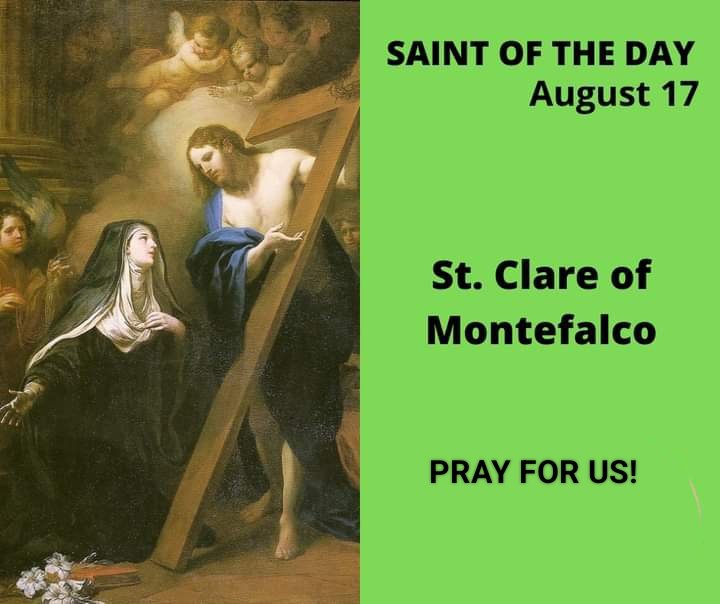
Saint Clare of the Cross, pray for us.
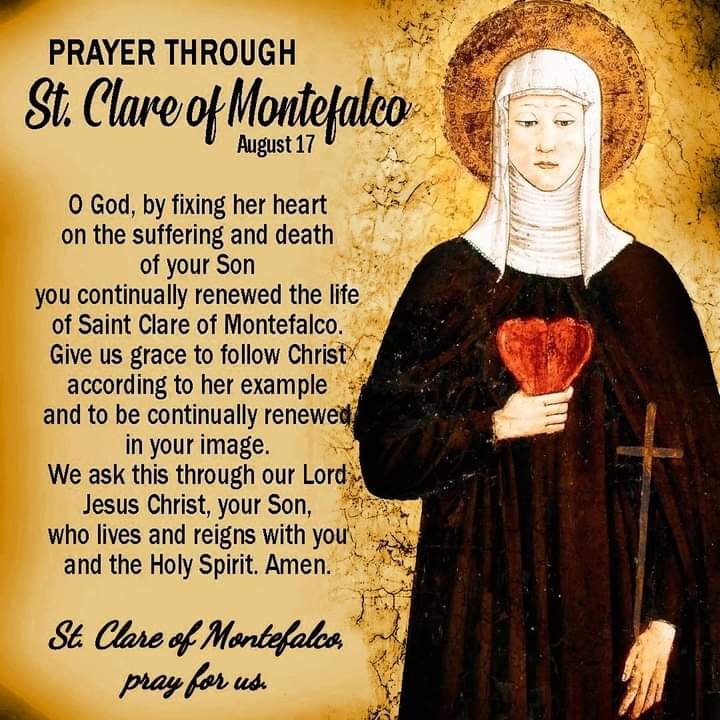
**************************
SAINT HYACINTH OF POLAND
CONFESSOR
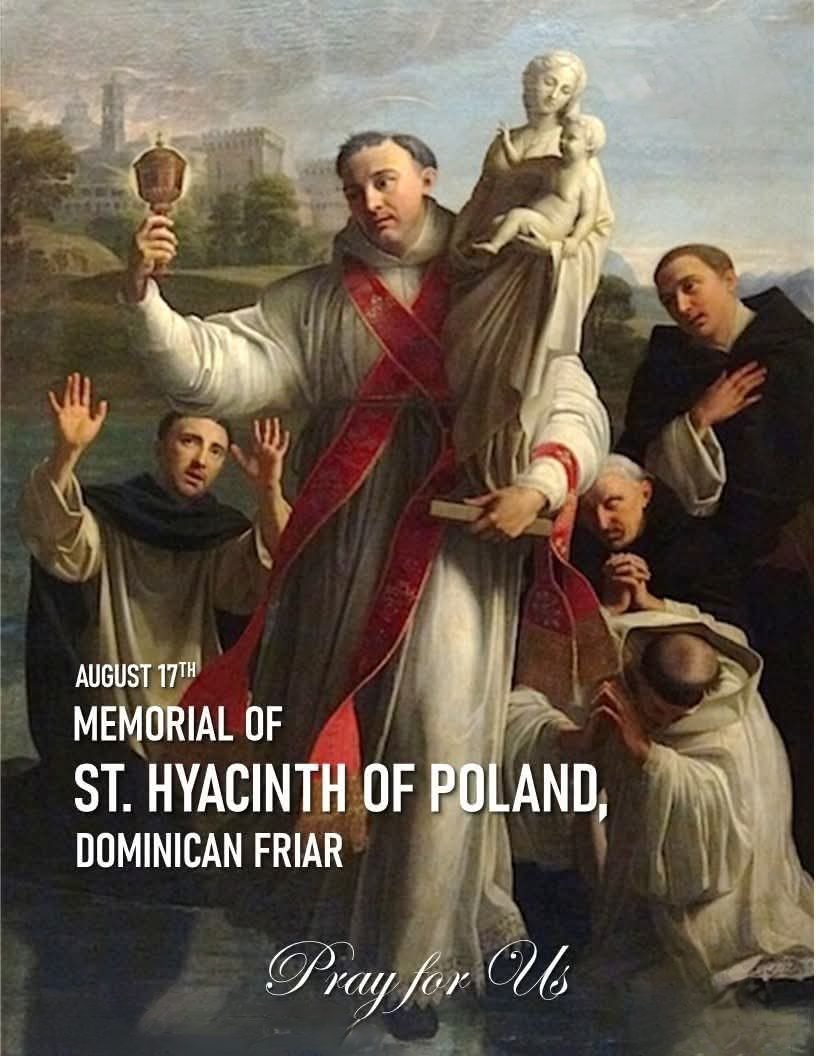
Saint Hyacinth (1185 – 1257) is called “the Polish St. Dominic,” which is to say that he was the founder of the Order in Poland the dynamo of holiness in the North that St. Dominic was in the South.
Hyacinth was born of the noble family of Odrowatz, in Polish Upper Silesia. He and Blessed Ceslaus, who was either a brother or a close relative, were carefully educated both in learning and in piety. They were greatly beloved by a priest uncle, Ivo, who sent them to the university and sponsored their education. The two young men were newly ordained priests and canons at the cathedral in Cracow when Ivo was appointed bishop of Cracow. When he went to Rome for his consecration, Bishop Ivo took his two young nephews with him.
In Rome, the Polish visitors heard much of the wonder working Spaniard, Dominic, and were present at the miracle he performed in restoring life to the nephew of Cardinal Napoleon. They were charmed with the ideals of the newly founded Order, and the new bishop begged St. Dominic to send friars to Poland. Dominic had no one to send, since none of the brethren spoke Polish, but his glance fell upon the two young priests in the bishop’s party. He gave them the habit, trained them himself, and sent them to evangelize the North.
Hyacinth’s life was henceforth an almost uninterrupted series of miracles. He walked a total of nearly twenty five thousand miles in his apostolic travels, preaching in all the countries of the North, from Denmark and Prussia to Greece, White Russia, Tartary, and Tibet. His progress among these hostile peoples, with their barbarous customs and unknown languages, through trackless forests, in the fierce cold of the North, can be explained only by a miracle.
Early in his mission career, Our Lady appeared to Hyacinth and promised him that she would never refuse him anything. Through the years of his arduous labor she kept her promise, and his ministry was rich with a harvest of souls. He performed many astounding miracles, including countless cures. On one occasion he gave sight to two boys who had been born without eyes. He raised several dead people to life. The best known incident in his life has to do with Our Lady, which is not surprising.
During one of the Tartar invasions the convent was attacked. Hyacinth was hurrying to remove the Blessed Sacrament to hide it, when he heard Our Lady tell him not to leave her statue behind to be desecrated. It was a large statue and Hyacinth did not know how he could carry it. “I will lighten the load,” said Our Lady. Carrying the Blessed Sacrament in one hand and the statue in the other, Hyacinth escaped from the burning convent and walked dry shod across the river. On every occasion of his life, Our Lady was to lighten the load for him, and, as a last favor, she appeared to tell him that he would die on the Feast of the Assumption.
Popular devotion to St. Hyacinth has survived time and many wars in the lands where he preached. He was the first outstanding, missionary apostle whose life and work shed glory on the Order at its very beginning, establishing a pattern for all the years to come.
He is the patron saint of Poland.
(Source : Dorcy, Marie Jean. St. Dominic’s Family. Tan Books and Publishers, 1983)
PRAYER
O holy St. Hyacinth, we ask you to intercede for us and win God’s blessings for us. We come together as family to bring praise and worship to the Father. May we live lives that are holy. Bless us with your devotion to Mary the Mother of God and with an ardent faith in Jesus in the Blessed Sacrament. Win for us the graces to continue to live according to gospel values and the teachings of the church. Intercede for us and protect us as we place ourselves under your patronage and care. Amen


